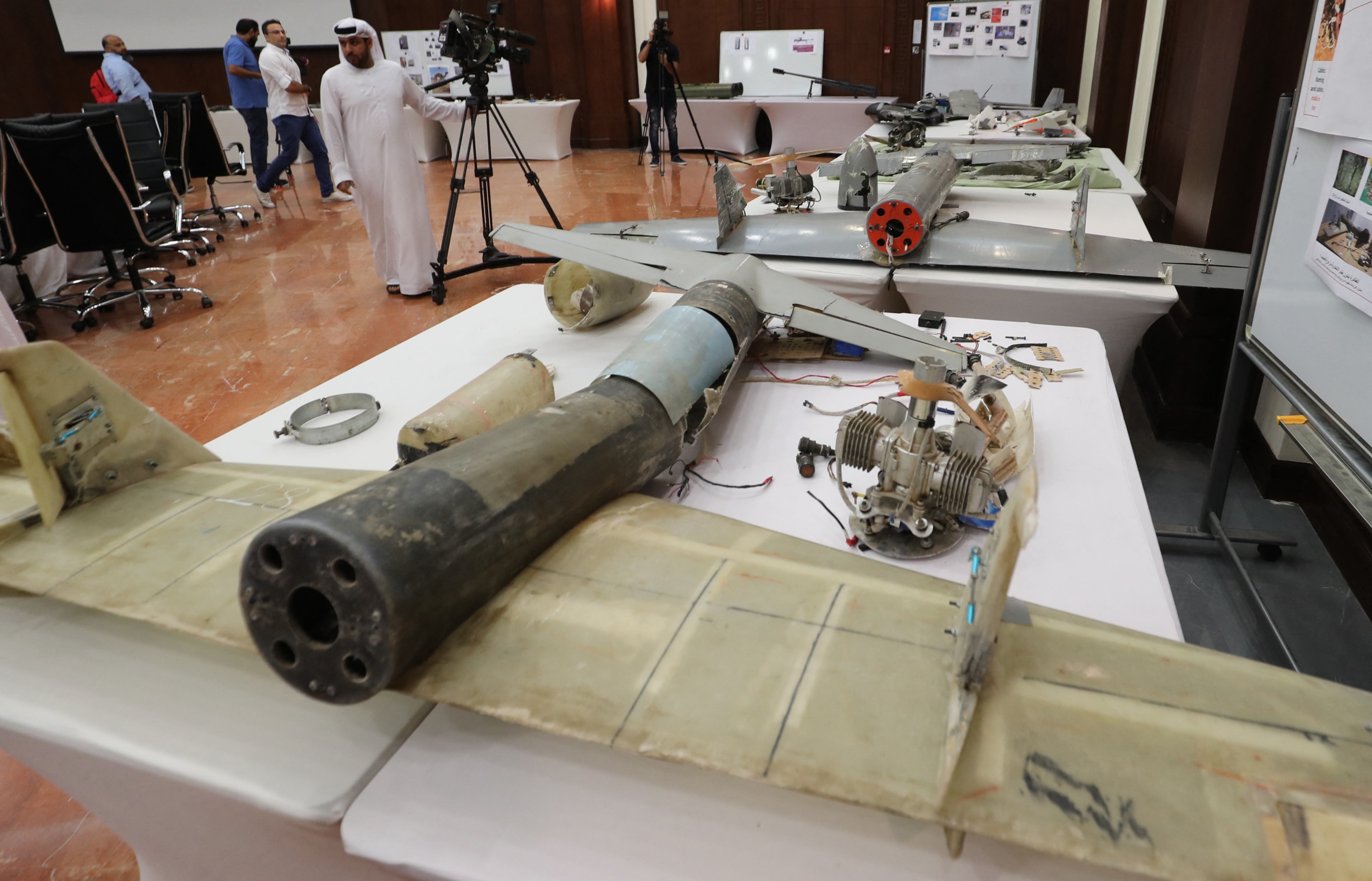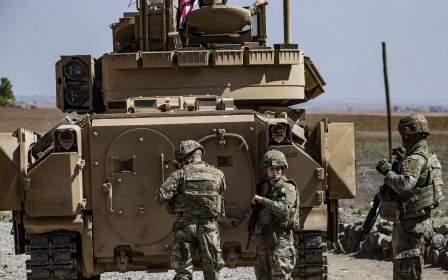US lawmakers hope to rein in Iran's drone programme

A bipartisan group of US lawmakers introduced legislation on Wednesday aimed at curbing Iran's growing drone programme, following a string of attacks that have targeted the US and its allies across the region.
The Stop Iranian Drones Act looks to clarify that existing US sanctions on Iran's conventional weapons systems also apply to individuals involved in the direct or indirect supply, transfer or sale of combat drones to or from Iran.
The bill was introduced by House Foreign Affairs Committee chairman Gregory Meeks and ranking member Michael McCaul, along with chairman of the subcommittee on the Middle East, North Africa and Global Counterterrorism Ted Deutch and ranking member Joe Wilson.
Text of the proposed act reviewed by Middle East Eye states that US policy shall seek to prevent "Iran and Iranian-aligned terrorist and militia groups from acquiring" drones that can be used in attacks against the United States and its allies.
The US and its partners have blamed Iran for a string of drone attacks this year including a strike on the Mercer Street tanker off the coast of Oman in summer, which resulted in the death of the ship's captain and a security guard.
New MEE newsletter: Jerusalem Dispatch
Sign up to get the latest insights and analysis on Israel-Palestine, alongside Turkey Unpacked and other MEE newsletters
Iranian proxies have also used drones to target US bases in Iraq, while Saudi Arabia, a key US ally, came under attack from drones used by the Iran-aligned Houthis in Yemen.
McCaul called the attacks "intolerable" in a statement: "With this bill, we are ensuring the world knows that the US will use every tool to cut off Iran's UAV supplies and to punish those who continue to supply Iran with UAVs and parts despite their destructive impact."
The latest attack attributed by US officials to Iran took place in October at a US military base in southern Syria, which they said was struck by five drones laden with explosive charges.
In October the Biden administration announced sanctions against the commander of a military drone unit of Iran's Islamic Revolutionary Guard Corps (IRGC), along with other individuals and companies it said were responsible for past attacks.
"Deadly drones in the hands of the world's greatest exporter of terrorism, Iran, jeopardizes the security of the United States and regional peace," Meeks said in a statement.
He added the bill would send "a strong signal to the international community" that supporting the Iranian drone programme would not be tolerated by the US.
The bill looks to address Iran's use of commercial component parts to assemble the rudimentary drones used by Tehran's forces and proxies.
Experts have warned that the simple make-up of Iran's drones and accessibility of many parts on the commercial market makes it difficult to rein in their proliferation.
In October, the Wall Street Journal cited a confidential report prepared for the UK government documenting how Iran was able to supply drones to its Houthi allies in Yemen and evade sanctions using commercial companies to obtain parts.
The rise of Iran's drone programme follows a warning from a top US military commander in April that the US risked losing its air superiority for the first time in decades, due to the use of small, inexpensive drones in theatres such as the Middle East.
Middle East Eye delivers independent and unrivalled coverage and analysis of the Middle East, North Africa and beyond. To learn more about republishing this content and the associated fees, please fill out this form. More about MEE can be found here.





